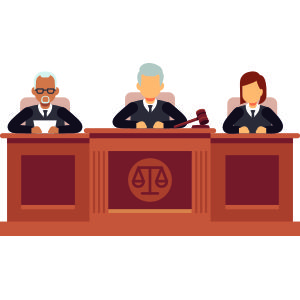Protection of intellectual property rights on the Internet
In today's digital world, protecting intellectual property (IP) rights on the Internet is critical for authors, developers, and businesses. The Internet opens up new opportunities for content creation and distribution, but it also creates risks for illegal use and infringement of IP rights. In this article, we will look at the main aspects of protecting IP rights in the digital environment, provide recommendations for legal protection and emphasize the importance of legal advice.
The main types of intellectual property on the Internet
- Copyright: refers to literary, artistic, musical works, software, databases and other works.
- Patents: protect inventions, technologies and innovative solutions.
- Trademarks: protect signs, symbols, logos that identify products or services.
- Trade Secret: Covers confidential information that has commercial value.
Copyright protection on the Internet
Copyright protects original works from unauthorized copying, distribution, or modification. In the digital age, copyright infringement has become common due to the ease with which content can be copied and distributed.
Consulting a lawyer will help determine the best strategies for copyright protection. Lawyers can help with the registration of works, drawing up license agreements and presenting claims against infringers.
Patents and innovation protection
Patents provide legal protection to inventions and new technologies. In the digital environment, it is important to protect software, algorithms and technical solutions.
A legal opinion can help in assessing the patentability of an invention and preparing patent applications. A lawyer online can provide advice on patent registration procedures in various jurisdictions.
Trademarks and branding
Trademarks are key to identifying products and services in the marketplace. On the Internet, they are often used for domain names, websites, and online advertising.
A legal analysis of the situation conducted by an online lawyer will allow you to determine the risks of trademark infringement and develop defense strategies. This includes monitoring the use of trademarks in the digital space and taking action against infringers.
Protection of commercial secrets
A trade secret covers confidential information that has an economic value and is not publicly available. On the Internet, the risks of trade secret leakage are increasing due to cyber-attacks and unauthorized access to information.
An online attorney's assistance can include developing privacy policies, drafting non-disclosure agreements (NDAs), and breach response measures.
Tips for protecting IP rights on the Internet
- Registration of rights: register your IP rights with the relevant authorities. This will strengthen your position in the event of a dispute.
- Monitoring: regularly check the Internet for violations of your rights. Use specialized services for content monitoring.
- Legal agreements: Enter into license agreements that clearly define the terms of use of your content or technology.
- Responding to violations: Take prompt action against violators, including legal action or requests to remove content.
- Legal advice: engage lawyers to conduct legal analysis and obtain legal opinions regarding the protection of your rights.
Protection of intellectual property rights on the Internet requires a complex approach and professional support. An online lawyer can provide qualified advice on all aspects of IP protection, help in drawing up the necessary documents and represent your interests in the event of a dispute. Using the help of an online lawyer will allow you to effectively protect your rights and minimize the risks of violations in the digital environment.

































